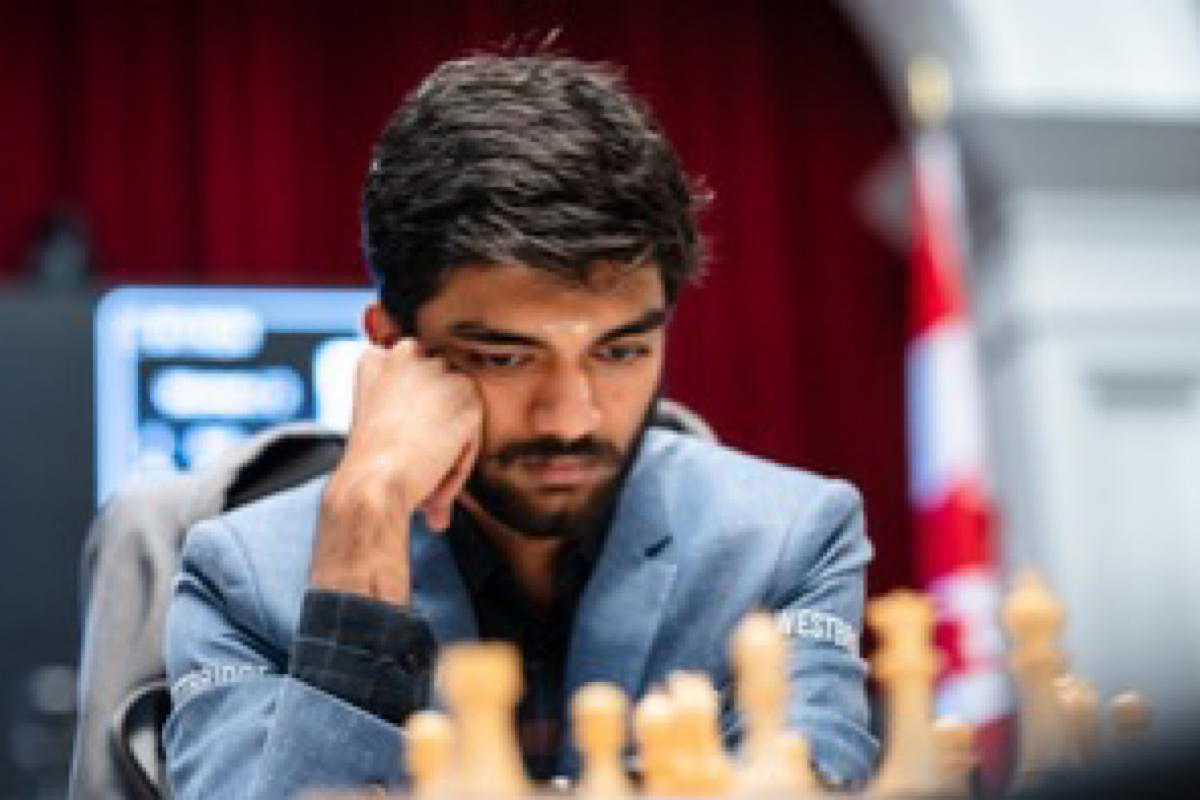Reigning Champion China’s Ding Liren bounced back from his defeat in the previous game and came up with a brilliant win against India’s Dommaraju Gukesh in Game 12 to tie the scores in their FIDE World Chess Championship Match at Resort World Sentosa here on Monday.
Playing with his back to the wall after making a blunder and losing Game 11, the 32-year-old Ding came up with a superb plan to capitalise on his positional advantage and converted it into overwhelming pressure with a fine queen move to level scores at 6-6 in the 14-game match.
Advertisement
There is something about Ding Liren and Game 12 of a match. The Chinese Grandmaster was under pressure in his World Championship Match against Ian Nepomniachtchi in 2023, trailing by a point. Ding, who had twice fought back from a game deficit, produced a superb game to level the scores. He went on to win the match in the rapid tiebreaker and become the first Chinese World Champion.
On Monday, the same Ding Liren of 2023 made his appearance in Singapore as he overwhelmed Gukesh, creating pressure after the opening and then slowly built on that position, pushing for victory in positions where he had otherwise played safely in the previous games.
Ding opted for the English Opening and Gukesh responded with Agincourt Defence. Even though he was initially taken back by Gukesh’s opening approach, Ding managed to find his way and create a chess masterpiece, perhaps one of the best games of his career.
After the game, Ding Liren accounted for his recovery in the postgame press conference: “Yesterday was a difficult game to deal with, but I tried to continue with my normal routine and be refreshed for this important game. Today I had a cup of coffee before the game, which helped me feel much more energetic, and also, I had some snacks to maintain my energy levels for the critical moment. I think I played a very good game and found some good moves”
Ding was positive and energetic in his approach. He had a slight positional advantage and slowly built on that as Gukesh took a lot of time and slowly slipped into a disadvantageous position. Ding, who at times played at an accuracy rate of 95 per cent, did not allow Gukesh to simplify the position and capitalised on an inferior rook move by the 18-year-old Indian to build on a masterpiece.
As Gukesh struggled with time, Ding came up with all the right moves, got an extra pawn and was threatening to checkmate when his Indian opponent resigned on the 39th move.
Gukesh did not play poorly in this game but it was Ding who was on a different level as he did not repeat his mistakes of previous games to land into time trouble. He kept track of the time and maintained his cool to bounce back to level scores. Instead, it was Gukesh who struggled against the ticking clock.
Despite suffering a major blow, Gukesh took it in stride. “Although I didn’t remember all the details, I was aware of the opening position. I thought I was quite comfortable after the opening but later on, I wasn’t sure what to do,” he explained after the game.
Though Gukesh was positive after the defeat, the Indian must be regretting his failure to capitalise on his chances in the previous games where he failed to convert solid positions into wins.
The players will have a rest day on Tuesday before they meet again for Game 13 on Wednesday.
In case the scores are still tied after 14 games, the match will go into a tiebreak of shorter games to decide the winner.











